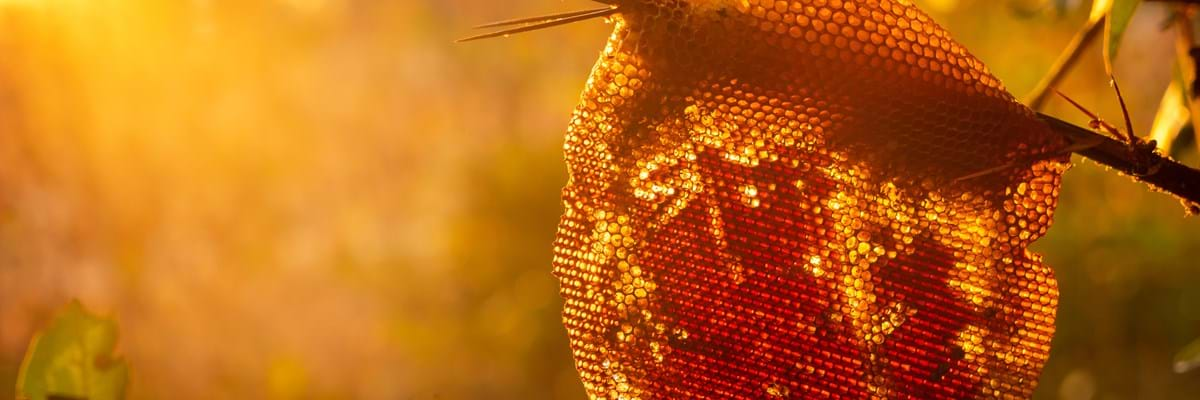Greek beekeepers have thousands of years of experience behind them – after all, the sweet delight of nectar is often referred to as the Food of the Gods – and the honeybee was so respected it appeared on many ancient coins, especially in the historic city of Ephesus.
Beehives discovered on Crete have been estimated to date from more than 3,000 years BC, and a golden jewel depicting two bees with a honeycomb, unearthed at the island’s Minoan palace of Malia, is thought to have been created around 1800BC.

Of course, honey is widely used in Greek cookery, especially cake and pastry, and to dress salads, and as you enjoy honey with your breakfast of figs and yogurt in the morning sun, or one of the many honey-fortified desserts in a taverna as the sun goes down, you might reflect that bees must gather nectar from two million flowers to make one pound of honey.
It is also worth taking a jar home as a souvenir, or as a present. While big producers of honey, the Greeks are equally large consumers and it is not easy to find outside the country, although some exporters have online shops.

Plants like thyme, heather, orange blossom and chestnut all contribute to distinctive flavours, and Greek islands like to promote their own specialities.
Tinos, in the Cyclades, takes pride in its thyme produce, while more than 2,000 beekeepers on Crete move their hives through the seasons among wild sage, blackberry, oregano and strawberry, as well as the cultivated citrus orchards.

Honeydew tree resin is a significant source for the bees of Greece, producing honeys rich in flavour and aroma, but generally less sugary-sweet than those from flower pollen.
Pine honey, from areas including Halkidiki and Rhodes, is rich in antioxidants, while the black firs of Mount Mainalo in the Peloponnese are renowned for a vanilla-like produce, and oak honey is a speciality from the Rhodope mountains in the east.
Health benefits were recognised by Hippocrates, the ‘Father of Medicine’, and the Aegean island of Ikaria has a particular claim for its local honey, rich in colour and taste – studies have suggested its inhabitants enjoy longer, healthier lives than almost any in the world.





